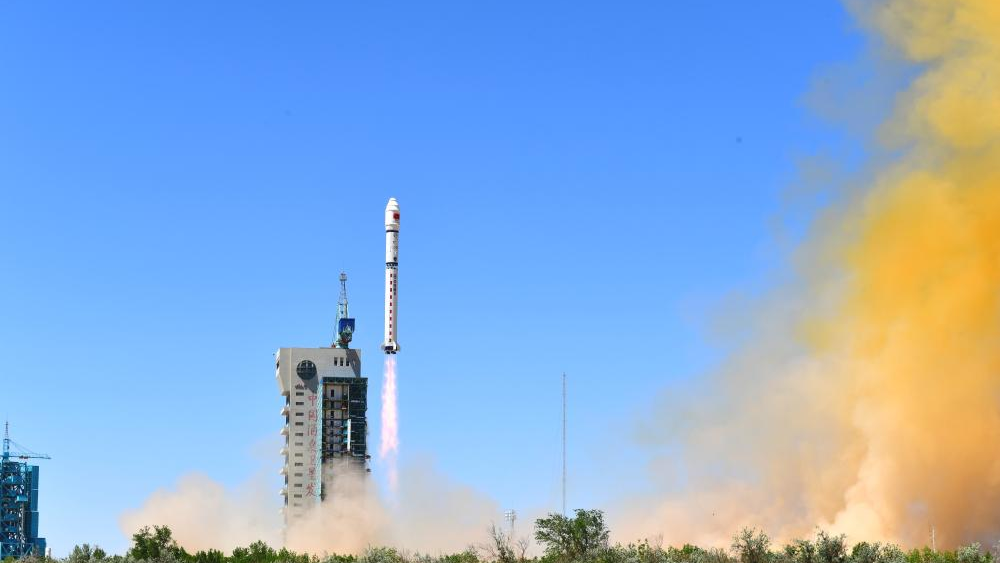
BEIJING - A Chinese satellite constellation for Internet of Things (IoT) operations has deployed its first-phase network with 64 satellites, enabling real-time, global surface communications excluding polar regions.
It came after a rocket lifted off on Wednesday from the sea in East China's Shandong province, sending 11 Geely-06 satellites into a preset orbit.
Geespace, the private satellite arm of automaker Geely Holding Group, deployed its constellation with six launches from 2022 to 2025, delivering full satellite reliability and network availability.
The constellation is designed to serve 20 million users worldwide, capable of handling up to 340 million messages per day. Serving up to 5 million high-frequency users and 15 million medium- and low-frequency users, it transmits 1,900-byte packets for text, voice and images.
ALSO READ: Chinese commercial satellite constellation completes network connection test
The first-phase network is poised to expand to 72 satellites, thereby boosting capacity and enhancing service reliability. Geespace then plans to have 264 satellites in orbits in Phase Two for direct-to-smartphone links and 5,676 in Phase Three for global broadband. With its first phase complete, Geespace is planning to roll out commercial satellite-IoT connectivity worldwide.
Built for space-based connected-vehicle networks, the constellation enables real-time positioning and messaging, keeping cars continuously linked.
Geespace has partnered with China Unicom, Geely Auto, and construction machinery giant Zoomlion to pilot satellite-IoT fusion in smart vehicles, marine fisheries, heavy machinery, and logistics.
Supported by the constellation, some Geely Zeekr and Galaxy electric vehicles now feature space communication. Users can send and receive messages via satellite when ground networks are disrupted.
China is now rapidly advancing the development of intelligent connected vehicle technologies. This pivotal platform integrates automotive technology with AI, information and communication, cloud computing, and big data, serving as the strategic compass guiding the global automotive industry's transformation.
READ MORE: China launches space computing satellite constellation
China Unicom, which secured the country's direct-to-phone satellite license in early September, conducted a field trial in February using Geely satellites, achieving two-way "vehicle-satellite-platform" links. This proved the worth of low-orbit satellites for connected cars and emergency communications.
For sectors like heavy machinery, the network can operate in a low-frequency, ultra-low-power mode, which cuts costs and extends battery life for satellite-supported devices. In emergencies, it's capable of switching to priority channels for instant response.
Globally, the space firm has signed agreements with telecommunications companies in more than 20 countries. In June 2024, the Geely constellation logged its first overseas commercial trial in Oman, according to Geespace.
To mass-produce spacecraft, Geespace built an intelligent satellite gigafactory in the eastern Chinese city of Taizhou, reducing build time to 28 days, increasing output tenfold, and lowering costs.
Geespace has also established a joint laboratory with Peking University to develop next-generation communications and smart-computing technologies. An experimental satellite from the lab was launched on Wednesday.


